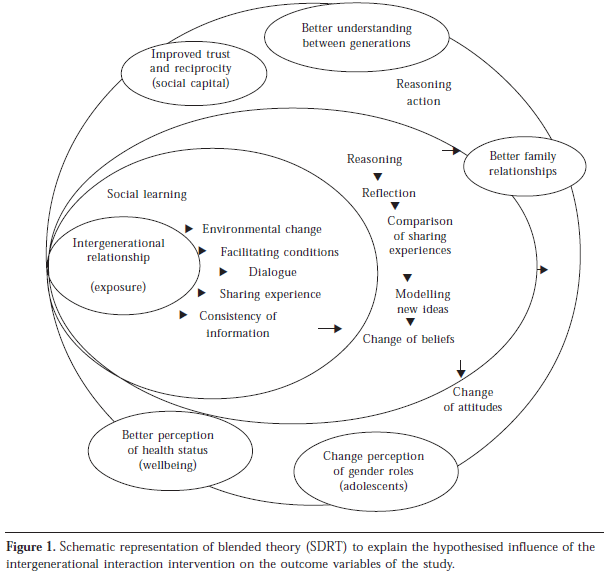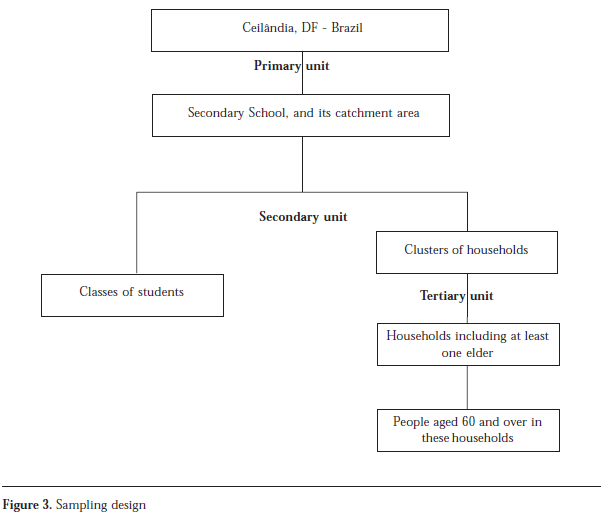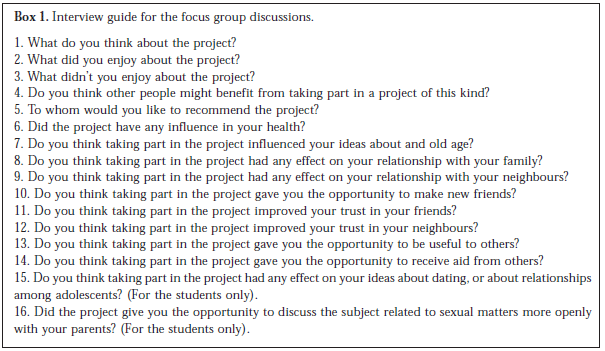Evaluation is a key word in any health promotion programme. However, it is a challenge to choose the most appropriate method of evaluation. The purpose of this paper was to describe a triangulated methodology developed to evaluate a health promotion intervention based on intergenerational activities and to describe the theoretical framework, which guided the study. From February to December 2002 a triangulation involving a community controlled trial, focus groups technique and observation process was developed in Ceilândia, Federal District of Brazil. Samples of 253 students aged 12 to 18 years old from a secondary school and 266 elders aged 60 and over from the local area were randomly allocated to control and experimental groups. Over four months, 111 students and 32 elders had weekly meetings at school to share their life histories. Before and after the intervention, a questionnaire was administered to control and experimental groups including the outcome variables. Although the study had some limitations, it was valuable in showing for the first time that this method can be used in interventions of this kind and also to show the importance of developing a theoretical framework to understand possible mechanism of interactions in intergenerational interventions.
Evaluation; Health promotion; Social capital; Triangulation; Intergenerational interaction; Theoretical framework




